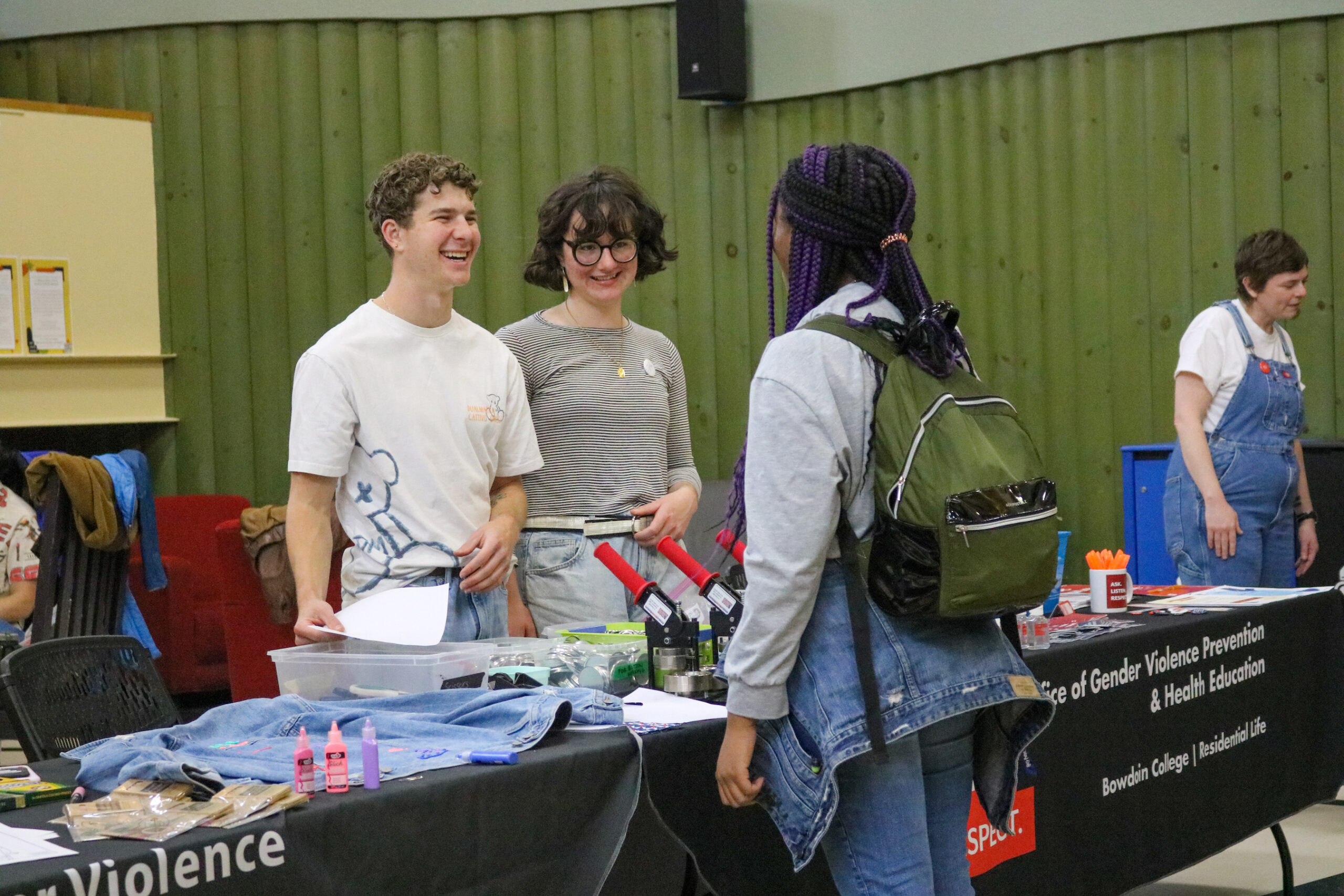Students don denim for sexual assault awareness
April 27, 2023
 Emily Campbell
Emily CampbellOver the last few days, students may have noticed posters along bathroom stalls urging them to wear denim on Wednesday. While this may seem like a puzzling, innocuous request, the statement those jeans and denim jackets sends is a much deeper one the College is working to transmit.
April is Sexual Assault Awareness Month, and April 26th is Denim Day, a day dedicated over the last twenty-four years to showing solidarity with survivors of sexual assault. The story began in 1992, when the Italian Supreme Court overturned the conviction of a 45-year-old who raped an 18-year-old, claiming that her tight jeans implied consent. The next day, female members of the Italian Parliament wore jeans in solidarity and protest. The day has been commemorated internationally ever since.
Rachel Reinke, director of gender violence prevention and health education, says Denim Day was something brought to her attention just last year by Luisa Wolcott-Breen ’25, who saw success with the event at her high school.
“In my high school, the reason Denim Day was so instrumental was [that] everyone was wearing denim and you noticed. It was a statement, and that connects back to the origins of Denim Day,” Wolcott-Breen said.
Thanks to Wolcott-Breen’s advocacy, Reinke says that last year’s Denim Day was relatively successful and provided a path towards expanding the event for the 2022-2023 academic year.
“We had a really great turnout last year; we had a few community partners [and] we gave away some snacks,” Reinke said. “I interacted with a lot more people than I thought I would. I actually interacted with some people who now work for the office, and they were really excited to get involved.”
This year, the number of community and campus partners expanded to include the Sexuality, Women, and Gender Center, Healthy Masculinities and Planned Parenthood, among others.
While Wolcott-Breen was responsible for bringing the event to campus, she emphasized that she did not put the event together alone. Wolcott-Breen worked with interns from the Office of Gender Violence Prevention and Health Center (OGVPHE).
Set up inside Smith Union, partners of the event tabled for their organizations, handed out gelato, raised awareness for the day and showed solidarity with survivors—all while wearing denim.
Pushing back against some complaints that Denim Day seeks to inappropriately “celebrate” sexual assault awareness, Reinke said that the celebratory aspect of the Denim Day events is more nuanced.
“I think that for Denim Day in particular, the celebratory aspect is not celebrating gender violence. The celebratory aspect is celebrating the resilience of survivors, and that we as a community can come together around these issues, and make campus a better place,” Reinke said.
Broadly, Reinke noted that programming around gender violence prevention education and advocacy always straddles the line between the seriousness of the topic and visibility needed to make change.
“If we can get attention by giving folks free gelato in the service of sharing information around gender violence prevention, I think that that makes a lot of sense for our campus,” Reinke said. “There are different approaches to different types of goals, and I think it’s hard to achieve every single goal with one singular event.”
Beyond Denim Day, programming for Sexual Assault Awareness Month included the installation of a Clothesline Project in Smith Union aimed at many of the same goals as Denim Day: visibility, awareness and solidarity. The installation displays shirts created during shirt design workshops open to students held on April 3 and 4. A Sexual Assault Awareness Book Display is on the first floor of Hawthorne-Longfellow Library, as well. Finally, an Intervening at Ivies Workshop was held in Lamarche Lounge on Wednesday evening.
Reinke said she felt positively about the events her office has facilitated during the month, again reiterating the balance she, and others, have attempted to strike through the programming.
“We have a lot of things going on. The students that worked for my office felt really strongly about there being a balance of community spaces, for support spaces, for learning, and also spaces for action and more on activism-oriented work.”
Kaya Patel contributed to this report.

Comments
Before submitting a comment, please review our comment policy. Some key points from the policy: